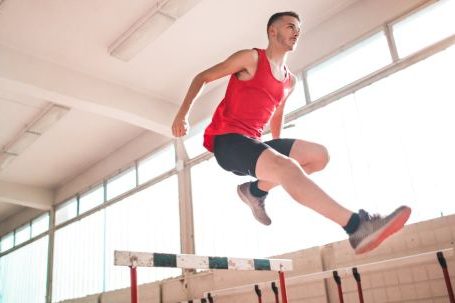Introduction
Are you an athlete looking to take your game to the next level? Do you want to improve your performance and enhance your skills in your chosen sport? If so, then sports-specific training is the key to unlocking your athletic potential. In this article, we will explore the importance of sports-specific training and how it can help you become a better athlete.
Understanding Sports-specific Training
Sports-specific training is a targeted approach to training that focuses on the specific demands and movements of a particular sport. It involves tailoring your workouts and exercises to mimic the movements and skills required in your sport. By doing so, you can improve your performance and reduce the risk of injuries.
The Benefits of Sports-specific Training
1. Enhanced Performance
One of the main benefits of sports-specific training is that it can significantly improve your performance in your chosen sport. By training specifically for the movements and skills required in your sport, you can enhance your agility, speed, strength, and endurance. This targeted approach allows you to become more efficient and effective in your movements, giving you a competitive edge over your opponents.
2. Injury Prevention
Another crucial advantage of sports-specific training is its ability to reduce the risk of injuries. By focusing on the specific movements and skills of your sport, you can strengthen the muscles and joints involved, improving their stability and resilience. Additionally, sports-specific training can help correct any muscle imbalances or weaknesses, which can often lead to injuries. By training in a sport-specific manner, you can minimize the risk of common sports-related injuries.
3. Skill Development
Sports-specific training is not just about physical fitness; it also plays a vital role in skill development. By practicing the specific skills and techniques of your sport, you can improve your coordination, timing, and accuracy. This targeted practice allows you to refine your skills and become more proficient in executing them during competitions.
How to Incorporate Sports-specific Training into Your Routine
1. Analyze Your Sport
The first step in incorporating sports-specific training into your routine is to analyze your sport. Identify the key movements, skills, and physical demands of your sport. This analysis will guide you in designing your training program.
2. Design a Training Program
Once you have analyzed your sport, it’s time to design a training program that focuses on the specific demands of your sport. This program should include exercises and drills that mimic the movements and skills required in your sport. It should also incorporate strength training, conditioning, and flexibility exercises to enhance your overall athletic performance.
3. Seek Professional Guidance
If you’re new to sports-specific training or want to take your training to the next level, it’s recommended to seek professional guidance. A qualified coach or trainer can help you design a customized training program that suits your needs and goals. They can also provide valuable feedback and guidance to ensure you’re performing the exercises correctly and safely.
Conclusion: Unlock Your Full Athletic Potential
Sports-specific training is a game-changer for athletes. By tailoring your training to the specific demands of your sport, you can enhance your performance, reduce the risk of injuries, and improve your skills. So, if you’re looking to unlock your full athletic potential, incorporate sports-specific training into your routine and watch yourself reach new heights in your chosen sport.





